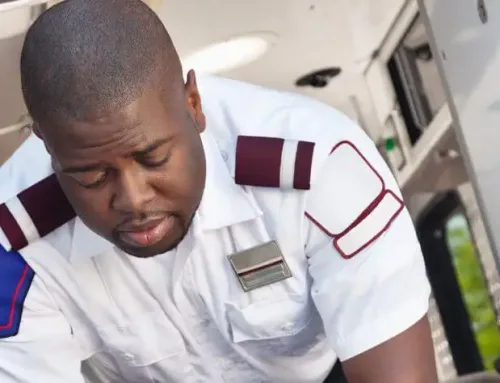The Best Bachelor’s Degree for Physical Therapy: What You Need to Know
Choosing the best bachelor degree for physical therapy is the first step toward a rewarding career in rehabilitation, movement science, and patient care. With the demand for physical therapists (PTs) projected to grow 14% by 2033, more students are pursuing this path—but getting into a Doctor of Physical Therapy (DPT) program requires a strong undergraduate foundation in the right subjects.
Since a DPT degree is mandatory to become a licensed physical therapist, your bachelor’s degree should cover key prerequisites like anatomy, physiology, and psychology while also providing hands-on healthcare knowledge. The right academic background can increase your chances of PT school acceptance and better prepare you for the challenges of clinical training and patient rehabilitation.
What Should You Major in for PT School? A Guide to Getting Started
Becoming a physical therapist requires several years of education and hands-on training, but it all starts with choosing the right bachelor’s degree. Before enrolling in a Doctor of Physical Therapy (DPT) program, students must complete an undergraduate degree with specific prerequisite courses to build a strong foundation in science and patient care.
Not all bachelor’s degrees prepare students equally for PT school. The right choice can make your DPT application more competitive, help you excel in graduate coursework, and provide valuable healthcare experience along the way. Let’s explore the degrees and academic requirements that set future physical therapists up for success.
The Path to Becoming a PT
To work as a licensed physical therapist, students must complete the following steps:
- Earn a bachelor’s degree with required prerequisite courses.
- Complete a Doctor of Physical Therapy (DPT) program (typically 2-3 years).
- Pass the National Physical Therapy Examination (NPTE) to obtain licensure.
While a DPT is required, your undergraduate degree plays a critical role in securing admission to a top program.
Why Your Bachelor’s Degree Matters
PT schools evaluate candidates based on a combination of academic performance, coursework, and hands-on experience. The most competitive applicants demonstrate:
- A strong GPA (3.5+ preferred for top DPT programs).
- Completion of prerequisite courses such as anatomy, physiology, physics, chemistry, and psychology.
- Observation and hands-on experience in physical therapy settings.
Selecting a bachelor’s degree that aligns with PT school requirements can streamline the application process, improve acceptance odds, and provide valuable clinical exposure before graduate school.
The Best Bachelor’s Degrees to Get Into PT School
Choosing the right bachelor’s degree is a key step for anyone planning to become a physical therapist. Since Doctor of Physical Therapy (DPT) programs require specific prerequisite courses, your undergraduate major should set you up for a smooth transition into graduate school while giving you relevant healthcare and science knowledge.
Health Sciences
A Health Sciences degree is one of the best choices for pre-PT students because it provides a well-rounded education in medical sciences, patient care, and healthcare systems.
- Covers essential PT school prerequisites, including anatomy, physiology, and health education.
- Offers interdisciplinary coursework that prepares students for patient interactions, rehabilitation, and healthcare communication.
- Our BSHS program offers a flexible online curriculum with coursework that supports students preparing for PT school while balancing clinical experience. With a focus on healthcare and human sciences, the program helps students build a strong foundation for advanced study in physical therapy and related fields.
Exercise Science & Kinesiology
For students passionate about human movement, rehabilitation, and sports therapy, an Exercise Science or Kinesiology degree is a strong option. This focuses on injury prevention, biomechanics, and movement science, making it ideal for sports therapy or athletic training.
Biology or Pre-Med
A Biology or Pre-Med degree provides a strong foundation in life sciences, making it a solid choice for PT students. However, it lacks direct clinical applications and patient care training, which may require additional experience in rehabilitation settings before applying to DPT programs.
Psychology (For Neurological & Pediatric PTs)
A Psychology degree is valuable for PTs specializing in neurological rehabilitation, pediatric therapy, or mental health aspects of recovery. It helps students understand patient behavior, cognition, and emotional well-being. Since PT programs require science-heavy prerequisites, students may need additional coursework in biology, chemistry, and physics before applying.
How to Build a Competitive PT School Application
PT school admissions are competitive, and strong grades alone won’t guarantee acceptance. Schools look for well-rounded candidates with clinical experience, leadership skills, and a demonstrated passion for patient care. The best applicants go beyond the minimum requirements, gaining hands-on experience, volunteering, and preparing strategically for the admissions process.
If you’re serious about getting into a Doctor of Physical Therapy program, it’s time to start building a standout application. Let’s break down the most important steps to help you boost your chances and secure a spot in PT school.
Gaining Clinical Experience & Observation Hours
Most PT programs require between 100 and 500 observation hours in a licensed physical therapy setting. The more diverse your experience, the stronger your application will be.
- Outpatient PT clinics Gain experience in sports injuries, post-surgical recovery, and rehabilitation.
- Sports rehab centers Learn from therapists working with athletes and movement specialists.
- Hospitals & inpatient rehab facilities See complex cases, neurological rehabilitation, and post-acute care.
Getting hands-on experience not only strengthens your application but also helps confirm that PT is the right career path for you.
Volunteering & Extracurricular Activities
Being involved outside the classroom demonstrates leadership, commitment, and initiative—all qualities PT programs value.
- Join pre-PT student groups or organizations like the American Physical Therapy Association (APTA).
- Volunteer with community wellness programs, adaptive sports teams, or rehab-focused non-profits.
Admissions committees want to see applicants who actively engage in their field and show a genuine passion for patient care.
Preparing for the GRE (If Required)
Some DPT programs require the Graduate Record Examination (GRE) as part of their admissions process.
- Plan to study for 3-6 months before applying.
- Aim for scores above the 50th percentile in each section to stay competitive.
- Use practice exams and targeted prep materials to improve weak areas.
Not all PT schools require the GRE, so check individual program requirements early in the application process.
A strong PT school application is built over time—through coursework, clinical experiences, and meaningful extracurricular involvement. Start investing in your future now to make your application as strong as possible.
Your Competitive Edge for PT School: SCU’s BSHS Degree
Getting into PT school takes more than just checking off prerequisites—it requires a strong academic foundation, healthcare experience, and the flexibility to gain real-world skills. Our Bachelor of Science in Health Sciences (BSHS) program is built to support future physical therapists with a curriculum that meets PT school requirements while allowing students to study at their own pace.
With a fully online, flexible format, students can complete their coursework while balancing other commitments. Our program offers concentrations that align with healthcare and rehabilitation fields, helping students build a strong foundation that can support their path toward PT school and other advanced healthcare studies.
SCU’s BSHS Program Overview
Our BSHS program provides a strong foundation for students interested in pursuing advanced healthcare studies, including PT school. With a flexible online format and relevant coursework, students can build essential knowledge while balancing other commitments.
- Fully online and flexible: Study full-time or part-time with a schedule that fits your life.
- Science and healthcare coursework: Covers key subjects that support PT school prerequisites.
- Healthcare-focused education: Develops a strong understanding of health sciences, patient care, and evidence-based practice.
Relevant SCU Concentrations for PT School
We offer specialized concentrations that align with physical therapy school requirements, helping students develop in-depth expertise in key areas:
- Functional Anatomy: Focuses on musculoskeletal structure, movement science, and rehabilitation, ideal for students pursuing careers in PT, sports medicine, or rehabilitation therapy.
- Integrative Nutrition and Wellness: Explores the role of nutrition in injury recovery and rehabilitation, particularly useful for PTs working with athletes, chronic pain patients, and post-surgical rehab.
Explore more of our concentrations that can strengthen your healthcare expertise and support your career goals.
Flexible Learning for Working Students
We know many students balance school with work, clinical experience, and personal commitments. That’s why our BSHS program is designed for maximum flexibility:
- Two courses at a time for better comprehension and retention.
- Study at your own pace—full-time or part-time—to fit your schedule.
- Gain real-world experience while in school, making you a stronger PT school applicant.
Fixed-Rate Tuition & Scholarships
We believe education should be accessible and affordable, which is why we offer:
- A Fixed-Rate Tuition Guarantee—no unexpected increases, just transparent pricing.
- Multiple scholarship opportunities to help eligible students lower costs.
With a curriculum tailored for PT school, flexible learning options, and financial support, SCU’s BSHS program is the perfect launchpad for your career in physical therapy.
Set Yourself Up for PT School Success
Choosing the best bachelor degree for physical therapy is the first step toward a fulfilling career in helping patients recover, regain mobility, and live healthier lives. The right undergraduate program sets the stage for DPT admissions, clinical experience, and a strong academic foundation. A degree that aligns with PT school prerequisites makes the journey smoother and prepares students for the challenges and rewards of this growing profession.
At SCU, we provide a flexible, healthcare-focused education designed to help students succeed in physical therapy school and beyond. With a fully online format, specialized concentrations, and financial support, we make it easier to pursue your passion for physical therapy. Take the first step—explore our program and apply today!
FAQs
What is the best major for getting into physical therapy school?
The best majors for PT school include Health Sciences, Exercise Science, Kinesiology, and Biology. These degrees provide the science prerequisites and foundational knowledge needed for a Doctor of Physical Therapy (DPT) program.
Do I need a specific bachelor’s degree to apply to PT school?
No, PT schools accept students from various academic backgrounds as long as they complete the required prerequisite courses in anatomy, physiology, chemistry, physics, and psychology. However, choosing a related major can make the transition into PT school smoother.
How important is my undergraduate GPA for PT school applications?
PT schools typically require a minimum GPA of 3.0, but competitive programs prefer 3.5 or higher. A strong GPA in science courses, along with clinical experience, makes applicants more competitive.
What kind of clinical experience do I need before applying to PT school?
Most PT programs require 100-500 observation hours under a licensed physical therapist. Experience in outpatient clinics, hospitals, and sports rehab centers is ideal, as it shows a well-rounded understanding of the field.
How does your BSHS program help students prepare for PT school?
Our Bachelor of Science in Health Sciences (BSHS) covers essential PT prerequisites, offers flexible online learning, and includes relevant concentrations like Functional Anatomy and Integrative Nutrition to strengthen a student’s DPT application.
Related Posts





